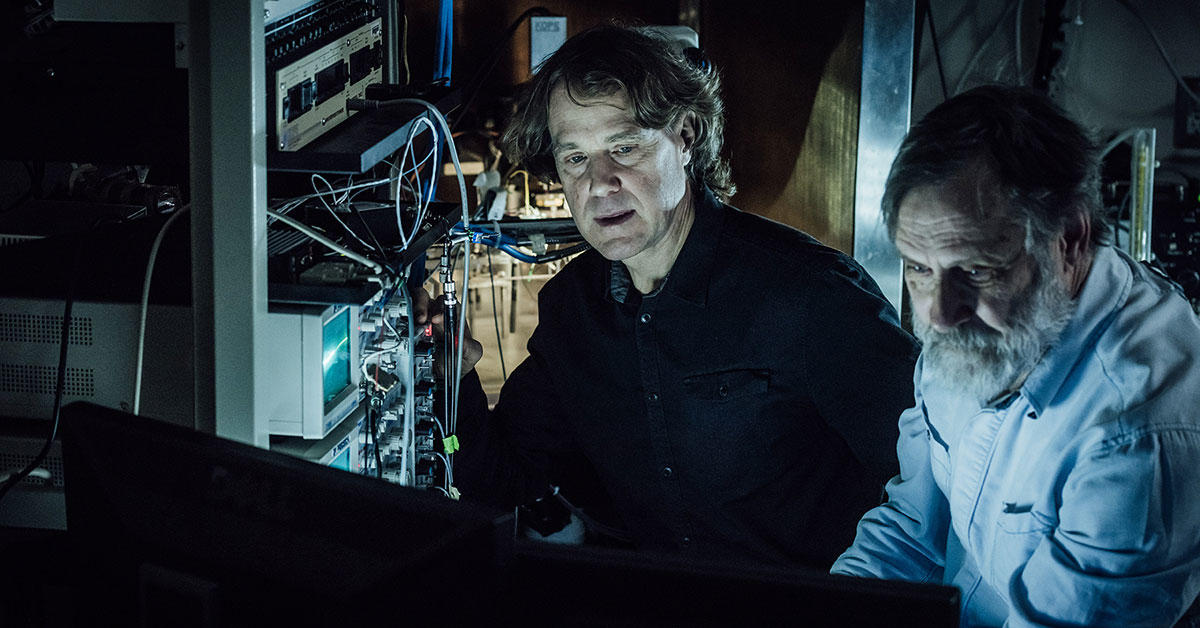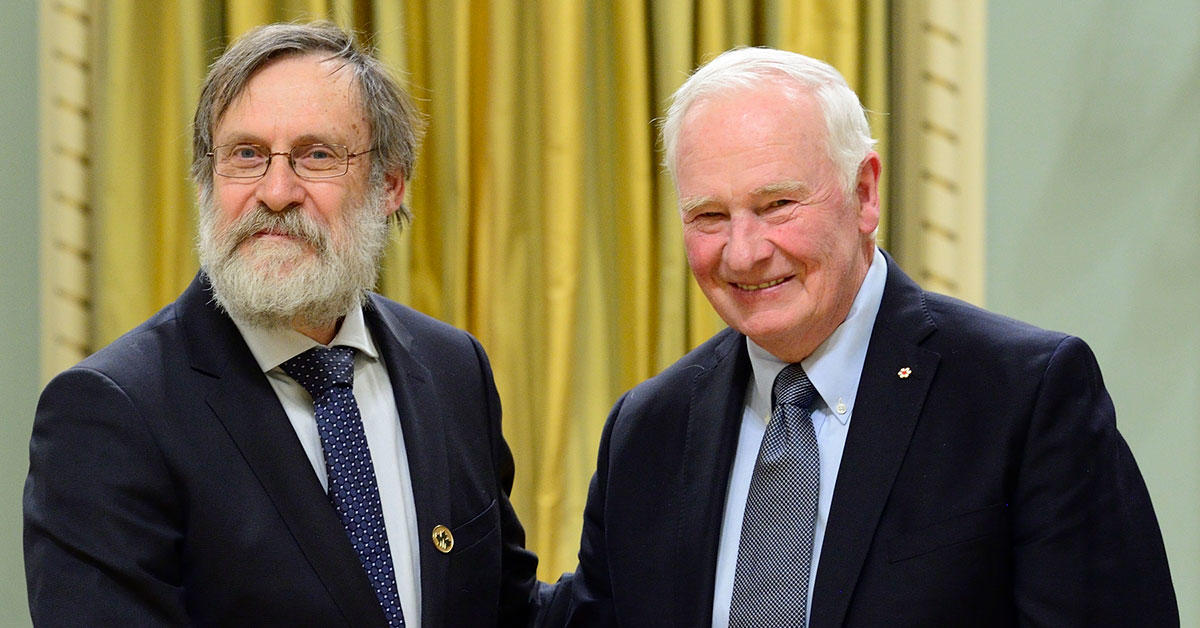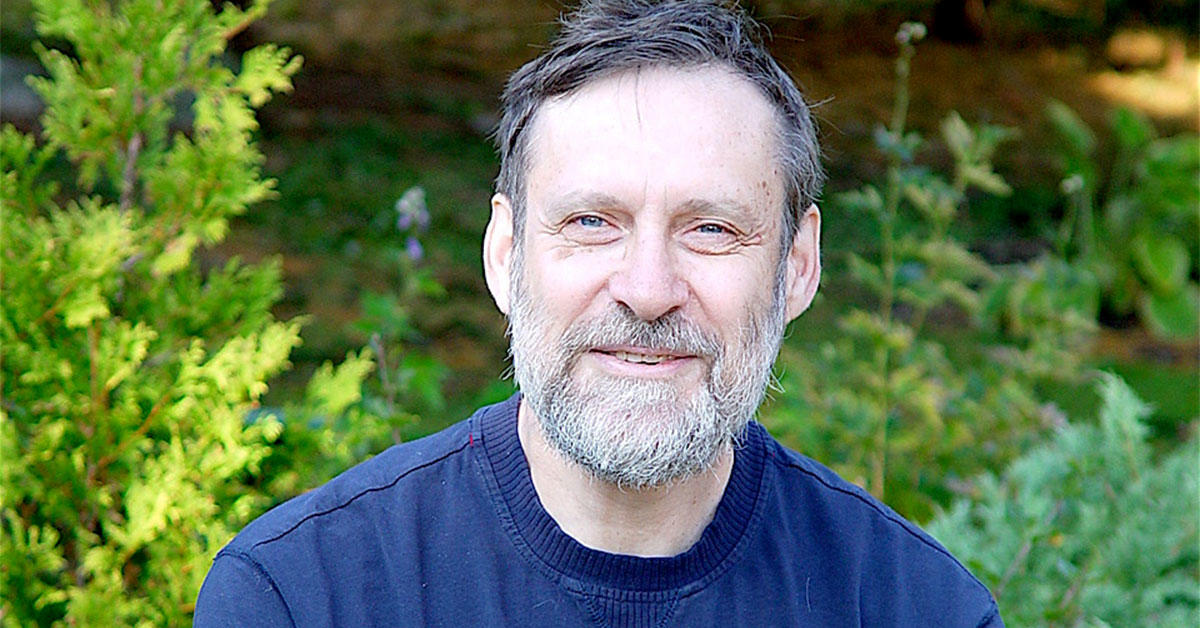
“Things were pretty different back then,” recalls Leonard Maler, a distinguished professor in the Department of Cellular and Molecular Medicine at the Faculty of Medicine who started work at the University of Ottawa in 1975.
“In 1981, I wrote my very first papers — two 100-page manuscripts — completely by hand, then they were transcribed on a typewriter by the departmental secretary. What a long and time-consuming process, but necessary because learning to type wasn’t part of our academic education.”

During his academic journey, Maler learned from a string of famous neuroscientists and went on to become one himself.
He is a pioneer in the field who has helped us understand how perception works in our brains. He has used electric fish, whose brains are fundamentally similar to ours, to trace signals as they move through the entire sensory process, observing the hidden signs of brain activity in moments of focus. Currently a member of the uOttawa Brain and Mind Research Institute and the Centre for Neural Dynamics, his research centres on experimental and computational analysis of the neural networks underlying perception and spatial learning.
Maler received a BSc from McGill University in 1968 and a PhD from the Massachusetts Institute of Technology (MIT) in 1973. At MIT, he worked in a lab run by renowned neuroscientist Walle Nauta.
After completing postdoctoral fellowships at the Scripps Institution of Oceanography in San Diego and the Max Planck Institute for Biophysical Chemistry in Göttingen, Germany, he joined the University of Ottawa in late 1975 and has been with us ever since.
“How was I hired? A process very different from what it is today,” says Maler.
While doing his postdoc at Max Planck in Göttingen, he was invited to speak at the University of Aarhus, in Denmark. After his seminar, he met and spoke at length with Professor Theodore Blackstad, an eminent neuroscientist and the chair of medicine at that university.
“A month or so after I returned to my research in Gottingen, I received a handwritten letter from Dr. Blackstad,” says Maler. “He mentioned that the University of Ottawa’s Faculty of Medicine was looking to recruit a strong neuroscientist to their Department of Anatomy. He asked for my permission to write a letter of recommendation to the department on my behalf. I wrote back, in my best handwriting, ‘Yes, thank you. Please do.’”
It wasn’t long before Maler found himself at uOttawa, hosting a seminar for the Department of Anatomy, which was also a way to evaluate him for a position. After the seminar, he was immediately offered a job. Talk about the power of networking!
“I started as an assistant professor in late 1975,” says Maler. “I was immediately surrounded by very supportive people: Dr. Marc Colonnier, a very fine neuroscientist and the chair of the Department of Anatomy at the time, who acted as my first mentor and guide, Dr. Jean-Jacques Lussier, the dean at the Faculty of Medicine, who, sadly, passed away soon after I arrived, and his replacement, acting dean Dr. Margaret Beznak, who was equally encouraging and supportive, and offered me space and time to begin my research.”
In 1976, Maler recalls, the Faculty of Medicine was mostly devoted to teaching. He spent half his time teaching medical students, many of whom have gone on to do great things and still keep in touch with him, and the other half conducting research with colleagues, including Emily Sas, with whom he was very fond of collaborating.
In 2017, he and colleague André Longtin of the Department of Physics were awarded NSERC’s Brockhouse Canada Prize for Interdisciplinary Research in Science and Engineering for combining their expertise to uncover key features of the neural code that underlies the operation of the brain.
“I have seen numerous changes and the biggest one is how uOttawa medicine retained a high level of medical education while simultaneously becoming an excellent centre of biomedical research,” says Maler. “Altogether, I look back and am really pleased with my career and with the tiny bit I contributed to making the Faculty of Medicine an outstanding place for both teaching and research.”
On November 26, more than 600 members of the uOttawa community came together virtually to celebrate our longest-serving employees. Here are the faculty and staff who have been with the University of Ottawa for 40 or more years:
Lise Desjardins, administrative assistant, School of Music
Balbir Dhillon, professor, Faculty of Engineering
Francine Lamadeleine, senior academic assistant, Teaching and Learning Support Service
Carolyn MacDonald
France Morrisette, professor, Civil Law Section
Dan-Sorin Nesculescu, professor, Faculty of Engineering
Stavros Tavoularis, professor, Faculty of Engineering
Annie Trottier Cousineau, Financial Aid and Awards Service
Leonard Maler, professor, Faculty of Medicine
Robert Nadon, technician, undergraduate laboratories
Thank you for all your hard work and dedication!
